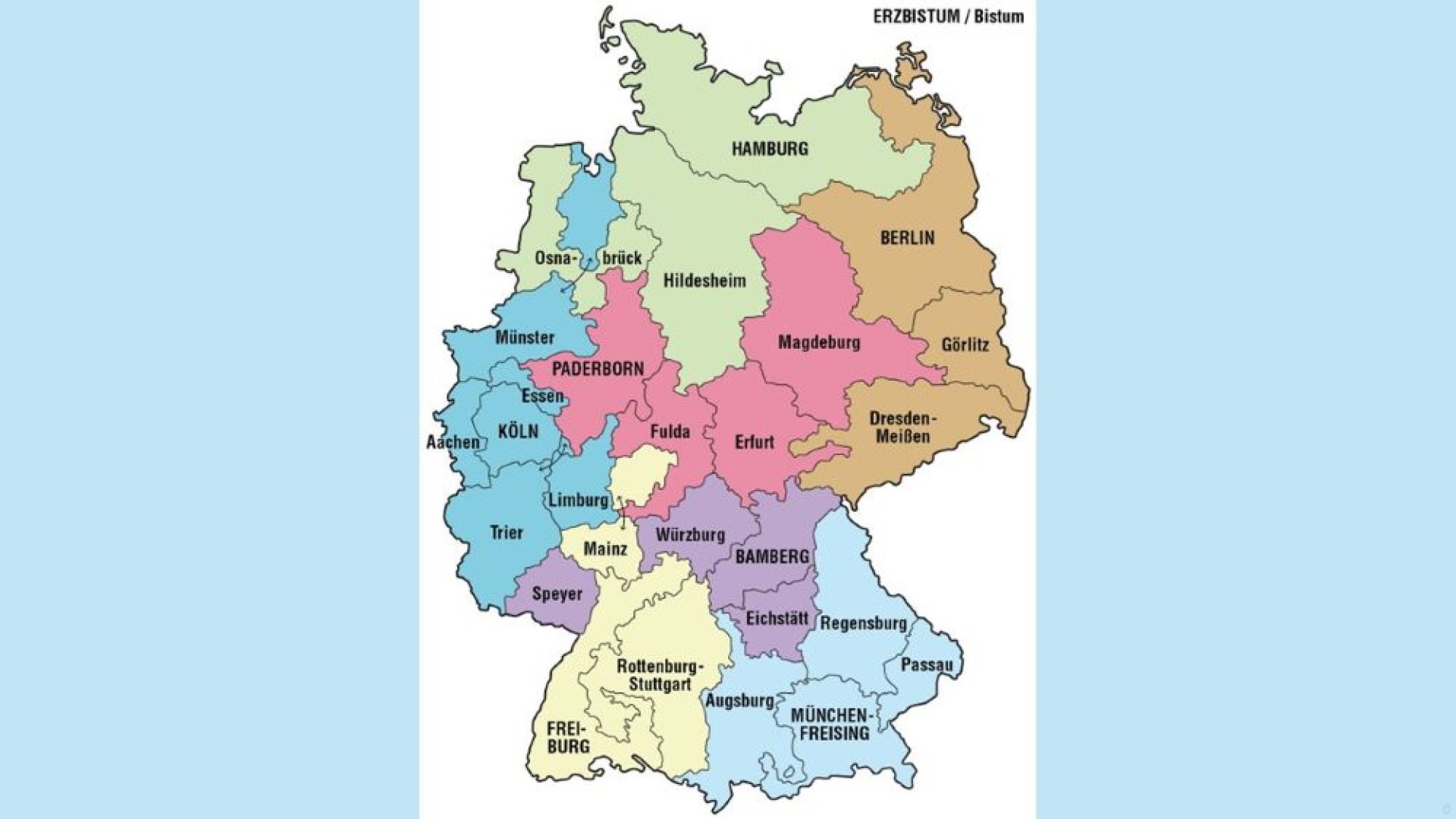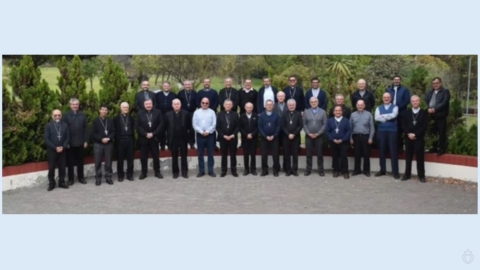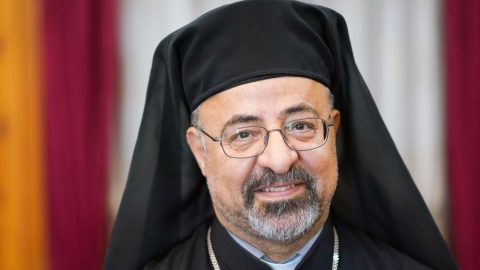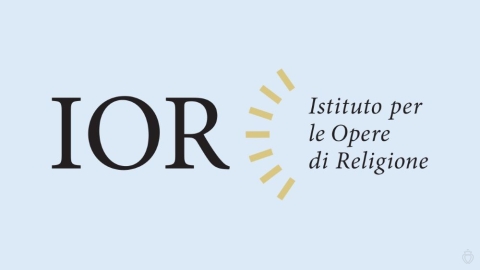Dioceses of the Former GDR: Only Two Ordinations

Map of the dioceses of Germany
There will be only two ordinations for the five dioceses of the former East Germany this year. Both involve late vocations. Three of the dioceses will not have any new priests this year.
This year, two priests will be ordained throughout the former East Germany. This is what the Catholic Information Agency (KNA) reveals. Last year, three priests were ordained, compared to seven in 2020.
The decline in priestly ordinations has been felt in Germany for a long time. The latest statistics from the German Bishops' Conference (DBK) show a total of 45 priestly ordinations in the 27 German dioceses in 2022. But the shortage is particularly noticeable in those located in the former GDR territory.
Among the two future ordains, Martin Hohmann, 45, is originally from Hesse. He converted from Protestantism to Catholicism at the age of 34. The other future priest, Harald Frank, 49, will be ordained in Berlin. There will be no priestly ordinations this year in the dioceses of Magdeburg, Dresden-Meißen, and Görlitz.
The two other dioceses located in the former territory of the GDR, which will each receive a priest, are Berlin and Hamburg.
The Church in the Former East Germany
The Church in the former GDR territory includes five dioceses: the Archdiocese of Hamburg with 121 parishes and around 400,000 faithful; the Archdiocese of Berlin with 94 parishes and also around 400,000 faithful; the diocese of Dresden-Meißen with 97 parishes and approximately 140,000 baptized people; the diocese of Magdeburg with 44 parishes and 78,000 baptized people; and, finally, the diocese of Görlitz with only 17 parishes and 30,000 faithful.
However, citizens of the former German Democratic Republic are apparently the least religious in the world. In a survey dating from 2012, carried out in 30 countries with a Christian culture, and published in Die Welt: 59% of Germans in the former East Germany say they have never believed in God, compared to 9.2% in West Germany.
After 40 years of communist dictatorship, 72.6% of respondents between the ages of 38 and 47 say they have always been atheists. But, among people under 28, who were still children, or not yet born when the Wall fell, 71.6% say they have never believed in God.
Young Germans from the former GDR are therefore as unbelieving as their elders. Thus, the disappearance of communist Germany did not cause atheism to decline. “If East Germany today is a mission country, then the Christian word does not primarily clash with other religions, but with a stable areligious environment,” explains theology professor Eberhard Tiefensee in Die Welt.
The communist past of the East German territories is undoubtedly not the only explanation for this record rate of atheism. The secularization which followed the Protestant heresy and especially the Kulturkampf had already produced losses which only worsened under the Marxist yoke.
An Emergency Situation
Bishop Georg Bätzing, president of the German bishops' conference, told Leben jezt, as reported by katholisch.de: "We live in a mission country when we see that less than half of German citizens still belong to Christian confessions.”
The Bishop of Limburg, however, still seems convinced that the only way out of this situation is through the Synodal Path or a similar approach.
(Sources : InfoCatolica/katholisch.de/Slate – FSSPX.Actualités)
Illustration : Maximilian Dörrbecker (Chumwa), CC BY-SA 2.5, via Wikimedia Commons





